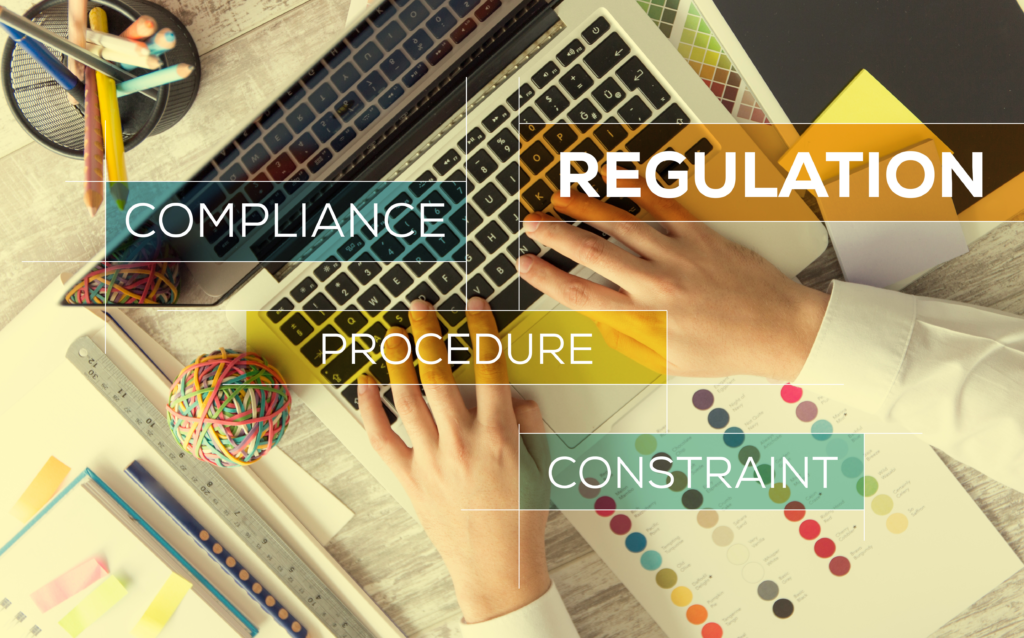In today’s dynamic digital marketing landscape, the integrity of data privacy and protection stands as a cornerstone for sustainable success. As regulatory frameworks evolve and consumer expectations heighten, marketers must navigate the complex terrain of data privacy with finesse, ensuring compliance while fostering trust. In this exhaustive discourse, we unravel the intricate tapestry of privacy and data protection in marketing, uncovering the latest regulations, optimal practices, and innovative strategies to fortify data integrity and engender consumer confidence.
Deciphering Data Privacy Regulations
In the dynamic landscape of digital marketing, adherence to data privacy regulations is not just a legal obligation but a fundamental ethical imperative. The regulatory framework governing data privacy, characterized by legislations like the General Data Protection Regulation (GDPR) in Europe and the California Consumer Privacy Act (CCPA) in the United States, is continually evolving. These regulations establish stringent standards for the collection, processing, and storage of personal data, aiming to safeguard individuals’ privacy rights in an increasingly data-driven world.
At the heart of these regulations lie core principles that delineate the responsibilities of organizations handling personal data. Delving into the intricacies of these regulations is essential for marketers to navigate the complex landscape of data privacy and avoid potential legal repercussions. Let’s explore the key components:
- Consent Prerequisites: One of the fundamental pillars of data privacy regulations is the requirement for explicit and informed consent from individuals before their data can be collected and processed. This consent must be freely given, specific, and unambiguous, and individuals should have the right to withdraw their consent at any time. Marketers must ensure that their data collection practices adhere to these stringent consent prerequisites to maintain compliance.
- Data Transparency Imperatives: Transparency is paramount in fostering trust between organizations and consumers. Data privacy regulations mandate that organizations provide clear and accessible information about their data collection and processing practices. This includes informing individuals about the types of data being collected, the purposes for which it will be used, and any third parties with whom it may be shared. By embracing transparency, marketers can build credibility and enhance consumer confidence in their data handling practices.
- Prerogative of Data Portability: Data portability is a key provision introduced by regulations like the GDPR, empowering individuals with greater control over their personal data. This right enables individuals to request access to their data held by organizations in a commonly used and machine-readable format. Additionally, individuals have the right to transmit this data to another organization without hindrance. Marketers must be prepared to facilitate data portability requests promptly and efficiently, ensuring compliance with regulatory mandates.
Understanding and adhering to these core tenets of data privacy regulations is paramount for marketers striving to maintain ethical standards and mitigate legal risks. By embracing transparency, obtaining explicit consent, and facilitating data portability, marketers can build consumer trust and foster sustainable relationships in the digital age. Moreover, by staying abreast of evolving regulatory developments and implementing robust compliance measures, marketers can navigate the intricacies of data privacy with confidence and integrity, laying the groundwork for responsible and ethical data-driven marketing practices.
Cultivating Trust Through Transparency
Transparency is not merely a buzzword in the realm of data-driven marketing; it’s the cornerstone upon which enduring relationships between businesses and consumers are forged. In today’s digital landscape, where data is currency, consumers are increasingly vigilant about how their personal information is collected, utilized, and protected. Hence, it’s imperative for marketers to prioritize transparency in their data acquisition and handling practices to cultivate trust and loyalty among their audience.
Central to cultivating trust through transparency is the dissemination of clear and comprehensive privacy policies. These policies should outline in plain language how the organization collects, processes, stores, and shares personal data. By providing transparency into their data practices, marketers demonstrate their commitment to respecting consumers’ privacy rights and earning their trust.
Furthermore, implementing opt-in consent mechanisms empowers consumers to make informed choices about the use of their data. Instead of assuming consent, marketers should proactively seek permission from individuals before collecting or processing their personal information for marketing purposes. This opt-in approach not only complies with regulatory requirements but also fosters a sense of control and empowerment among consumers, enhancing their trust in the brand.
Elucidating data utilization protocols is another essential aspect of transparency in data-driven marketing. Marketers should be transparent about how they leverage consumer data to personalize marketing campaigns, improve product offerings, or enhance user experience. By explaining the purposes behind data utilization and the benefits it brings to consumers, marketers can demystify the process and build credibility.
By proactively disclosing the intricacies of data handling and being transparent about their practices, marketers not only comply with regulatory mandates but also foster a culture of transparency and accountability. This transparency builds consumer confidence, as individuals feel assured that their personal information is being handled responsibly and ethically. Moreover, it cultivates brand loyalty, as consumers are more likely to engage with and advocate for brands that prioritize transparency and respect their privacy rights.
In essence, transparency is not just a regulatory requirement; it’s a strategic imperative for marketers in the digital age. By embracing transparency in their data practices, marketers can build trust, foster loyalty, and differentiate their brands in a crowded marketplace, ultimately driving long-term success and sustainable growth.
Implementing Robust Data Protection Measures
Implementing robust data protection measures is not just about ticking boxes to comply with regulations; it’s about taking proactive steps to safeguard sensitive information and preserve the trust of customers. In today’s interconnected digital landscape, where cyber threats loom large, organizations must adopt a multi-layered approach to data security to mitigate risks effectively.
Encryption stands as a foundational pillar of data protection, rendering sensitive information indecipherable to unauthorized parties. By encrypting data both at rest and in transit, organizations can ensure that even if a breach occurs, the stolen data remains unintelligible and unusable. Implementing robust encryption protocols, such as AES (Advanced Encryption Standard) or RSA (Rivest-Shamir-Adleman), helps thwart unauthorized access and safeguard data confidentiality.
Stringent access controls play a pivotal role in limiting the exposure of sensitive data to unauthorized personnel. By implementing role-based access controls (RBAC), organizations can restrict access to data based on individuals’ roles and responsibilities within the organization. Additionally, employing multi-factor authentication (MFA) adds an extra layer of security, requiring users to provide multiple forms of verification before accessing sensitive data or systems.
Data minimization is a guiding principle in effective data protection, advocating for the collection and retention of only the data necessary for legitimate business purposes. By minimizing the amount of personal information stored and processed, organizations reduce their risk exposure and limit the potential impact of a data breach. Adopting a “less is more” approach to data collection not only enhances security but also demonstrates respect for individuals’ privacy rights.
Devising comprehensive data breach preparedness and response strategies is essential for effectively mitigating the ramifications of potential security incidents. Organizations should establish clear protocols for detecting, assessing, and responding to security breaches promptly. This includes implementing incident response plans, conducting regular security assessments and audits, and ensuring adequate training for employees to recognize and report security threats. By having a well-defined response plan in place, organizations can minimize the impact of data breaches, mitigate financial and reputational damage, and maintain customer trust.
In conclusion, implementing robust data protection measures requires a holistic approach encompassing encryption, access controls, data minimization, and comprehensive breach preparedness strategies. By prioritizing data security and taking proactive steps to mitigate risks, organizations can safeguard sensitive information, comply with regulatory requirements, and preserve the trust of customers. In today’s digital age, data protection is not just a legal obligation—it’s a critical aspect of responsible business practices and a key differentiator in building customer confidence and loyalty.
Harmonizing Personalization with Privacy
Harmonizing personalization with privacy represents a delicate balancing act for marketers seeking to deliver tailored experiences while respecting consumer privacy rights. While personalized marketing holds immense potential for enhancing customer engagement and driving conversions, it must be implemented in a manner that prioritizes data privacy and instills trust among consumers.
An essential strategy for achieving this equilibrium is the adoption of anonymization methodologies. By anonymizing personally identifiable information (PII), marketers can protect individuals’ privacy while still leveraging aggregate data insights to inform personalized marketing strategies. This approach ensures that consumers’ identities remain concealed, minimizing the risk of data breaches or unauthorized access to sensitive information.
Preference-based targeting paradigms offer another avenue for harmonizing personalization with privacy. Instead of relying solely on demographic or behavioral data, marketers can prioritize consumer preferences and consented interests when crafting personalized experiences. By respecting individuals’ stated preferences and explicitly granted permissions, marketers demonstrate a commitment to privacy and enhance consumer trust in their marketing efforts.
The integration of privacy-preserving technologies, such as differential privacy, further strengthens the alignment between personalization and privacy. Differential privacy techniques allow organizations to analyze and derive insights from sensitive data while preserving individual privacy through noise injection or data aggregation. By employing these advanced privacy-preserving measures, marketers can unlock valuable insights without compromising the confidentiality of personal data, thereby bolstering consumer confidence in their data handling practices.
By prioritizing privacy in personalized marketing initiatives, marketers not only mitigate the risk of regulatory non-compliance but also cultivate trust and forge enduring connections with consumers. When individuals feel confident that their privacy rights are respected and their data is handled responsibly, they are more likely to engage with brands, share personal information, and become loyal advocates. Ultimately, harmonizing personalization with privacy is not just a regulatory obligation—it’s a strategic imperative for building sustainable relationships and driving business success in today’s data-driven landscape.
Empowering Consumers Through Education
Empowering consumers through education about data privacy is not only essential for their own protection but also for fostering a culture of responsible data stewardship. In today’s digital age, where personal data is increasingly valuable and vulnerable to misuse, providing consumers with the knowledge and tools to understand and control their data is paramount.
One key strategy for consumer education is the deployment of comprehensible privacy notices. These notices should be easily accessible and written in clear, jargon-free language that the average consumer can understand. By outlining how their data is collected, used, and protected, privacy notices empower consumers to make informed decisions about sharing their personal information with organizations. Additionally, privacy notices should clearly explain individuals’ rights regarding their data, such as the right to access, correct, or delete their information.
Adopting consumer-centric language is another effective approach to empower consumers through education. Rather than using technical terminology or legalistic language, marketers should communicate with consumers in a way that resonates with their concerns and priorities. By framing discussions about data privacy in terms of individual rights, security, and control, marketers can help consumers understand the relevance and importance of protecting their personal information.
Execution of targeted educational campaigns is also instrumental in empowering consumers with the knowledge to navigate the complexities of data privacy. These campaigns can take various forms, including blog posts, social media content, webinars, and interactive quizzes. By delivering engaging and informative content, marketers can raise awareness about common data privacy risks, best practices for safeguarding personal information, and resources for seeking further assistance or information.
By arming consumers with the knowledge to make informed decisions about their data, marketers not only empower individuals to protect their privacy but also build trust and foster mutually beneficial relationships. When consumers feel confident that their data is handled transparently and responsibly, they are more likely to engage with brands, share personal information, and advocate for organizations that prioritize their privacy rights. Ultimately, consumer education is not just a legal obligation—it’s a strategic imperative for building trust, loyalty, and long-term success in the digital marketplace.
Ensuring Holistic Compliance Across Channels
Ensuring holistic compliance across various marketing channels is essential in today’s data-driven landscape, where consumer privacy concerns are at the forefront of regulatory agendas. Marketers must adopt a comprehensive approach to compliance that extends beyond individual channels, encompassing a range of practices and measures to safeguard consumer data and uphold regulatory standards.
One crucial aspect of ensuring holistic compliance is the conduct of data protection impact assessments (DPIAs). DPIAs involve systematically evaluating the potential privacy risks associated with new projects, initiatives, or changes in data processing practices. By identifying and mitigating privacy risks early in the planning stages, marketers can proactively address compliance requirements and minimize the likelihood of data breaches or regulatory infringements.
Meticulous management of third-party vendors is another key component of holistic compliance. Many marketing activities involve the sharing of data with external partners, such as advertising platforms, analytics providers, or marketing agencies. Marketers must ensure that these vendors adhere to the same rigorous privacy standards and practices as their own organization. This involves conducting due diligence assessments, implementing contractual safeguards, and monitoring vendor compliance through regular audits or reviews.
The implementation of ongoing compliance monitoring mechanisms is essential for maintaining adherence to regulatory requirements across channels. This may involve establishing internal processes for monitoring data processing activities, conducting regular privacy audits or assessments, and staying abreast of regulatory developments that may impact marketing practices. By continuously monitoring compliance, marketers can identify and address potential gaps or areas of non-compliance before they escalate into significant issues.
By embracing a comprehensive approach to compliance, marketers not only mitigate the risk of regulatory infringements but also fortify consumer trust. When consumers perceive that their privacy rights are respected and protected across all channels of engagement, they are more likely to engage with brands, share personal information, and maintain long-term relationships. Ultimately, holistic compliance is not just a legal obligation—it’s a strategic imperative for building trust, loyalty, and credibility in the digital marketplace.
Anticipating the Future of Data Privacy in Marketing
Anticipating the future of data privacy in marketing requires a forward-thinking approach that takes into account the rapid pace of technological advancements and evolving consumer expectations. As the digital landscape continues to evolve, several emerging trends and technologies are poised to shape the trajectory of data privacy in marketing:
- Blockchain-driven data protection solutions: Blockchain technology holds immense potential for revolutionizing data privacy and security in marketing. By leveraging decentralized ledger systems, marketers can create immutable records of data transactions, enhancing transparency and accountability. Blockchain-based solutions offer robust encryption and authentication mechanisms, minimizing the risk of data tampering or unauthorized access. Additionally, smart contracts enable automated enforcement of data privacy policies, ensuring compliance with regulatory requirements.
- Decentralized identity management frameworks: Traditional identity management systems often centralize personal data in vulnerable repositories, making them prime targets for cyber threats. Decentralized identity management frameworks, powered by technologies like decentralized identifiers (DIDs) and verifiable credentials, enable individuals to maintain control over their personal information. By empowering users to manage and selectively disclose their identity attributes, these frameworks enhance privacy while reducing reliance on centralized intermediaries.
- Artificial intelligence in compliance automation: Artificial intelligence (AI) is increasingly being utilized to streamline compliance processes and enhance data privacy in marketing. AI-powered solutions can analyze vast amounts of data to detect and mitigate privacy risks, identify patterns of non-compliance, and automate routine compliance tasks. Natural language processing (NLP) algorithms enable automated review of privacy policies and terms of service, ensuring alignment with regulatory requirements. Additionally, machine learning algorithms can adapt to evolving threats and regulatory changes, enabling proactive risk management.
By remaining vigilant and adaptive to these emerging trends and technologies, marketers can proactively align their strategies with evolving consumer expectations and regulatory mandates. This proactive approach enables marketers to stay ahead of the curve, ensuring sustained relevance and efficacy in an increasingly complex data privacy landscape. By embracing innovative solutions such as blockchain-driven data protection, decentralized identity management, and AI-powered compliance automation, marketers can enhance consumer trust, mitigate regulatory risks, and drive long-term success in the digital marketplace.
Conclusion
Privacy and data protection serve as linchpins of ethical and efficacious digital marketing endeavors. By embracing a multifaceted approach encompassing regulatory compliance, transparent practices, robust security measures, and consumer empowerment, marketers can navigate the labyrinthine terrain of data privacy with confidence and integrity. By placing privacy at the forefront of their strategies, marketers forge enduring bonds of trust with consumers, laying the groundwork for sustained success in the ever-evolving digital realm.
Frequently asked questions (FAQs)
What is blockchain technology, and how can it enhance data privacy in marketing?
Blockchain technology is a decentralized ledger system that enables secure and transparent recording of transactions across a network of computers. In marketing, blockchain can enhance data privacy by providing immutable records of data transactions, ensuring transparency and accountability. With blockchain, marketers can create tamper-proof records of data exchanges, reducing the risk of unauthorized access or data manipulation.
How do decentralized identity management frameworks work, and what benefits do they offer for data privacy?
Decentralized identity management frameworks empower individuals to maintain control over their personal information by leveraging decentralized identifiers (DIDs) and verifiable credentials. These frameworks enable users to manage and selectively disclose their identity attributes, reducing reliance on centralized intermediaries. By giving users greater control over their data, decentralized identity management enhances privacy and reduces the risk of data breaches or identity theft.
What role does artificial intelligence play in compliance automation for data privacy in marketing?
Artificial intelligence (AI) is increasingly being used to automate compliance processes and enhance data privacy in marketing. AI-powered solutions can analyze large volumes of data to detect and mitigate privacy risks, identify patterns of non-compliance, and automate routine compliance tasks. Natural language processing (NLP) algorithms enable automated review of privacy policies and terms of service, ensuring alignment with regulatory requirements. Additionally, machine learning algorithms can adapt to evolving threats and regulatory changes, enabling proactive risk management.
How can marketers ensure compliance with emerging data privacy regulations and standards?
To ensure compliance with emerging data privacy regulations and standards, marketers should stay informed about the latest developments and trends in data privacy. This includes regularly monitoring updates to regulations such as the GDPR and CCPA, as well as staying abreast of industry best practices and guidelines. Additionally, marketers should invest in robust compliance management systems and processes, conduct regular audits of data handling practices, and prioritize employee training on data privacy principles and procedures.
What are some key considerations for implementing privacy-preserving technologies in marketing strategies?
When implementing privacy-preserving technologies in marketing strategies, it’s essential to prioritize transparency, user consent, and data security. Marketers should clearly communicate to consumers how their data will be collected, used, and protected, and obtain explicit consent for data processing activities. Additionally, marketers should invest in secure data storage and transmission protocols, and regularly assess and update their privacy practices to align with evolving regulatory requirements and industry standards.












